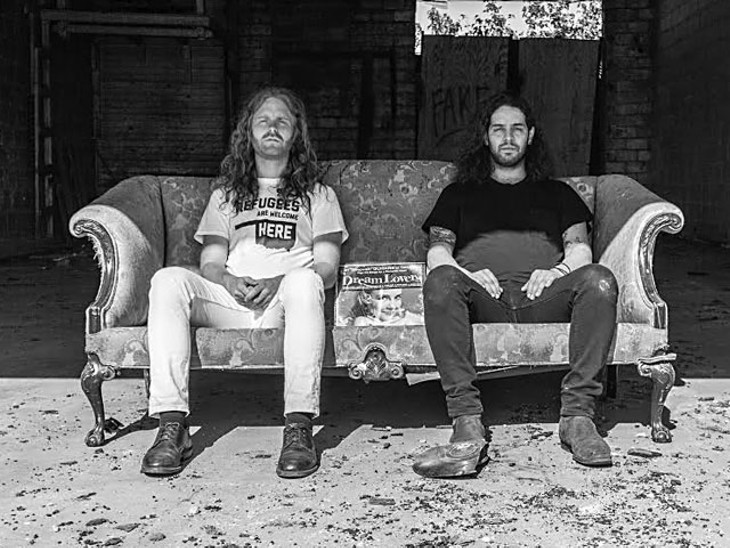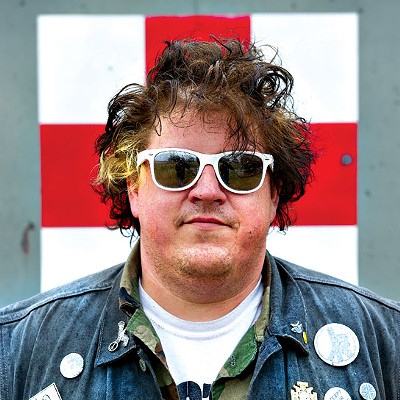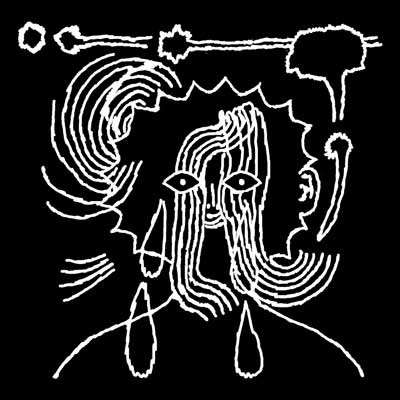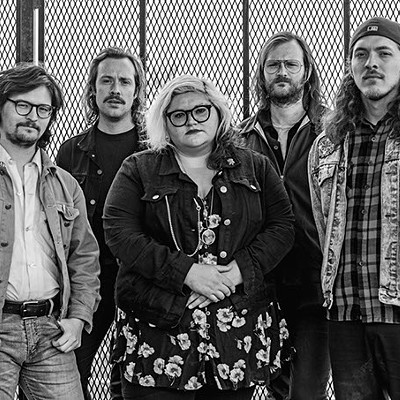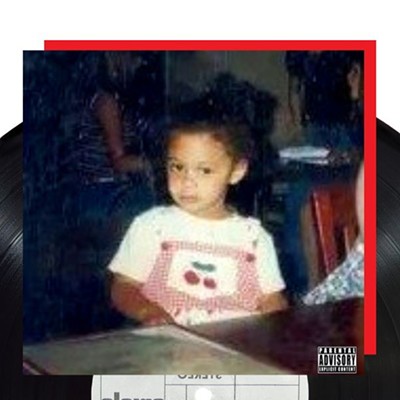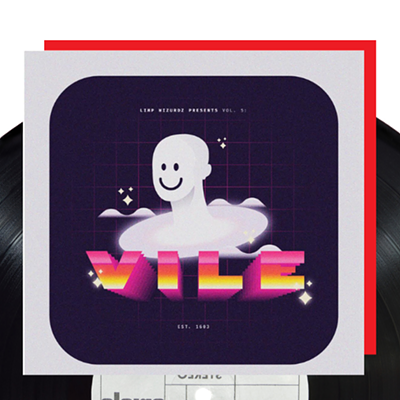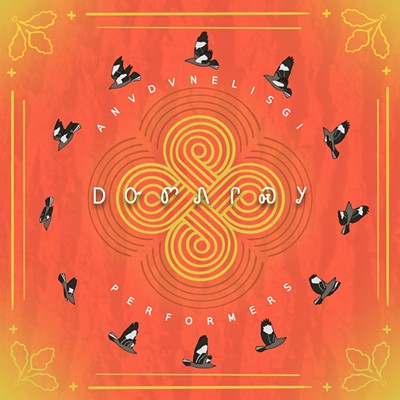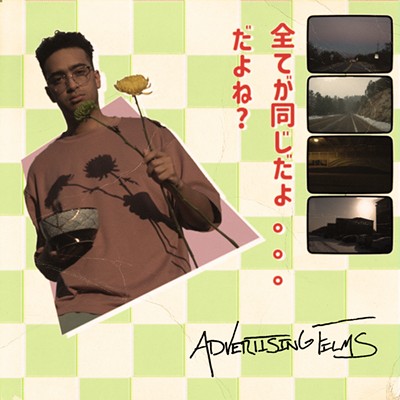A prime example of globalization in today’s music culture can be found in Karger Traum, an Oklahoma City-based German-language ambient electronic duo that derives much of its inspiration from an electropunk band that traces its origins back to late-1970s West Germany.
Karger Traum, which recently released its album Such a Dream on Atlanta’s DKA Records, is comprised of producer and OKC experimental music maven Blake Lusk and vocalist Taylor McKenzie, a German teacher at Classen School of Advanced Studies most known as a guitarist in bands like Cherry Death (of which Lusk is also affiliated), American Hate and Glow God.
The duo makes no attempt to hide its affection for the German duo Deutsch Amerikanische Freundschaft (also known as D.A.F. — German-American Friendship in English) and similar European bands known for avant-garde, post-punk and new wave styles.
Though many people today commonly associate electronic music with varieties of electronic dance music (EDM), McKenzie said Karger Traum is more closely aligned with the more minimalistic and less glossy electronic body music (EBM).
“EBM is like if you mixed real industrial music with dance music,” McKenzie said. “I’d say that’s the best description of it. So it has this darker tinge to it from the industrial side, but it’s still dance-oriented.”
In December, Karger Traum is set to embark on a two-week tour across the central United States. Though the band values its recorded music, the live experience is what most interests McKenzie, whose German-language lyrics and chants range from droning trance to spirited outburst.
Needless to say, most of the people Karger Traum plays for have no idea what the words mean.
“There’s something really freeing about that — to be able to express your mind,” he said. “Two people in front of their faces, but they have no idea what you’re saying. It’s kind of strange.”
For McKenzie, Karger Traum is a chance to communicate with people in ways that transcend the literal meaning of words.
‘Barren dream’
Karger Traum is a spinoff of Lusk’s solo project Holy Siege. He constructed some soundscapes in the vein of D.A.F. and invited his friend McKenzie, who has spent time living in Berlin, to say things in German during his live set.McKenzie wore all white, and Lusk wore all black. They both felt good about that debut set, so they decided to turn the project into an official group called Karger Traum, which translates in English to “barren dream.”
The band’s lyrics are now written more like set patterns, but for the first six months of the project, McKenzie delivered his vocal performances based mostly on what he was feeling at the moment.
“It was very improvised, lyricwise,” he said. “That was very fun. That’s still a big element of it. It’s very much an emotional rollercoaster.”
Karger Traum’s initial demo project was released May 2016 on Lusk’s Tape Gun Records. The duo worked more than six months on a follow-up full-length album, which was eventually picked up by DKA Records.
McKenzie said when he first approached the label about Karger Traum, they were skeptical of the project’s lyrics and asked for English translations.
The initial hesitation might have been off-putting to some, but Karger Traum saw it as reassuring. McKenzie said in some circles, there is a darker side to electronic music with ties to racist and, in some cases, neo-Nazi ideals. These obscure subgenres are sometimes called Fashwave or Darkwave and are starkly contrasted Karger Traum’s ideals and beliefs.
McKenzie said he was happy to find a label with an awareness of that and a drive to provide an open and inclusive platform for all. Some electronic music publishers have a reputation for not being very selective.
“Sometimes people can write off this type of music as just being posh or sometimes even sketchy,” he said. “No one knows what I’m saying. That, in itself, is kind of eerie to people. Especially in a language like German, which has been picked up by tons of right wing, neo-Nazi enthusiasts.”
Forging bonds
McKenzie said he does not like the idea of two people on a stage performing to a bunch of gawking, passive observers. He wants his music to be a dialogue — even if that dialogue is nonverbal. Body movement and dance can be just as effective for expression.“I like to try to read into the people that are standing in front of us and communicate with them, even just psychically, and have them give something off to me that I can respond to,” he said.
There is irony in the fact that a German-language band based in the United States would be focused on the idea of effective audience communication, but it highlights Karger Traum’s desire to reach people on a level that goes beyond the superficial.
Language can be a powerful tool, but it can just as easily be an obstacle, particularly on an international level. By taking dictionary meanings from its audience, McKenzie said Karger Traum can begin communicating on an emotional level.
“The main goal with any band I’m in — I just want to see the world and meet people,” he said. “I’ve always thought of touring as a vehicle to see new people, meet new people and get together with old people and not just make connections in a business sense, but to exchange.”
Visit dkarecords.bandcamp.com.
Print headline: Finding meaning; OKC electropunk duo Karger Traum tries to spark a dialogue with its audiences by singing in German.

